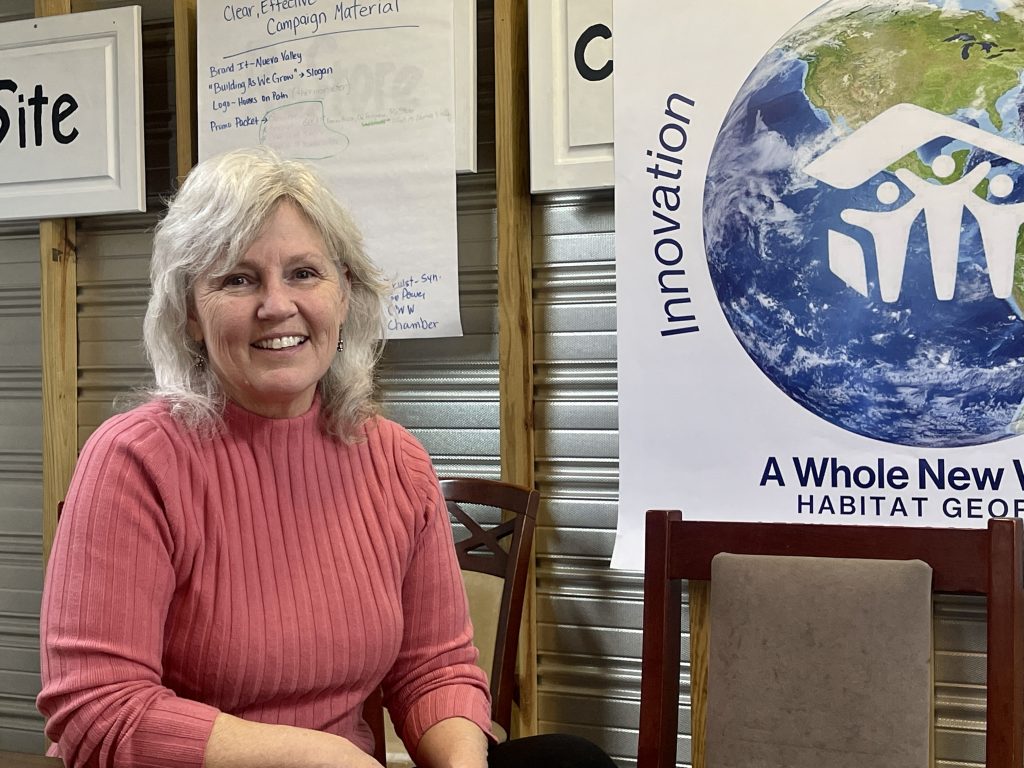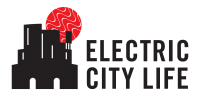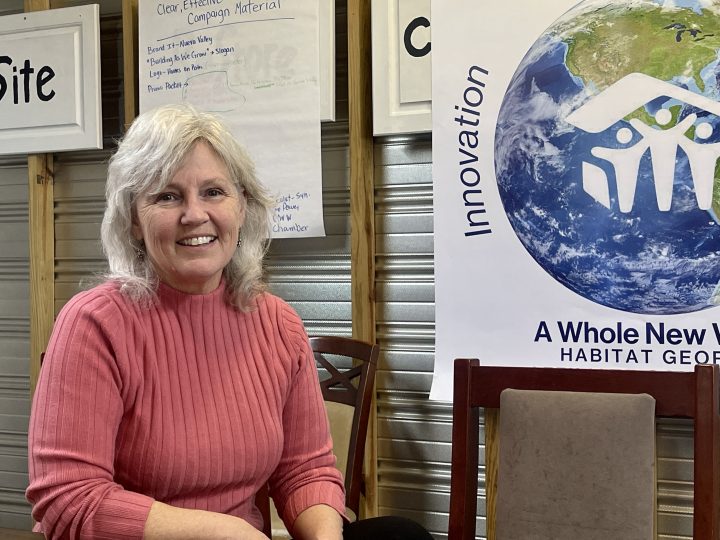
Executive Director, Columbus Area Habitat for Humanity
“It used to be that Habitat just built new houses,” the local Habitat leader says of their efforts. Working closely with the city and corporate partners with a $1 million capital campaign underway, the Columbus affiliate’s goal now is “to show the community what we do and to have a bigger impact. The ultimate goal is to let Columbus know of the various things that we do.”
What all encompasses the operations of Columbus Area Habitat for Humanity?
“Our program has been wonderful. Our main goal is to provide safe, affordable housing. We build houses; we rehab houses; and we do repairs. Our Restore is kind of a fundraiser that helps us. We save a lot of stuff from dumpsters and people can come get discounted household items.
It used to be that Habitat just built new houses. They started doing repairs Back in ‘08 and ‘09 when the Recession hit and nobody was giving donations to their Habitats. So Habitat International decided to count other things and now we count families served.
Four years ago, we started doing senior repairs with Aging in Place. We call the whole thing Continuing Hope — there’s a couple of different sections of it. One of them is where the city’s Community Reinvestment Department gets funding for critical repairs. Basically, they get the money and we do the program.
This is all for seniors and people with disabilities. They meet the same criteria as the applicants for new houses. They have to own their own home — we don’t do repairs on rentals. Same income range between 60 and 80 percent of the median income, which in Columbus is around $62,000.
We have a lot of applications who don’t qualify because they don’t have enough income to meet the monthly mortgage. People don’t understand we sell the houses with a 0 percent interest mortgage, so that’s big savings. At closings, I like to show what a normal mortgage would cost the homeowners versus what they will pay through us.”
Doesn’t Habitat have a sweat equity requirement for new homeowners?
“They have to do so many hours of sweat equity. It depends on family size and ranges from 250 to 400 hours. They can do it at the site, at the Restore, or any activity that involves Habitat. And family members can get involved to count toward their hours. That’s always fun, they learn things about the inner workings of their new home.”
What are some challenges unique to the Columbus Habitat affiliate?
“Probably property — lots to build on. We get a call about a donation of a lot, but then it’s like, ‘Would you want to live there?’
We’re trying to do more infill. We’ll find lots in already established neighborhoods. Because it’s hard to redo an entire neighborhood, it doesn’t get improved with just new houses.
Finding a suitable neighborhood where you’ll feel comfortable putting a family in — that’s the biggest challenge. We get donations of lots, but we turn them down because we don’t want to put a family in an unsafe place. Either due to crime or it’s next to railroad tracks or it is by businesses. Again, I’lI ask the donor, ‘Would you want to live there?’”
What are some of your greatest assets that are unique to the Columbus affiliate?
“Diversity and inclusion. Our community is pretty much half and half when it comes to black and white population. So we can include everybody. Some communities struggle with that. We have a diverse population we can work with and we’re proud of that. Our board, our staff, our applicants — we like that.”
Who is your typical applicant?
“That has changed. Usually, young mothers with a couple of kids. Some young families. But we’re now getting more and more people in their 40s and 50s. In our senior program you have to be at least 62.
It’s not typical anymore. It’s the whole range. With the repairs, we cover the whole county. The seniors we serve are everywhere.”
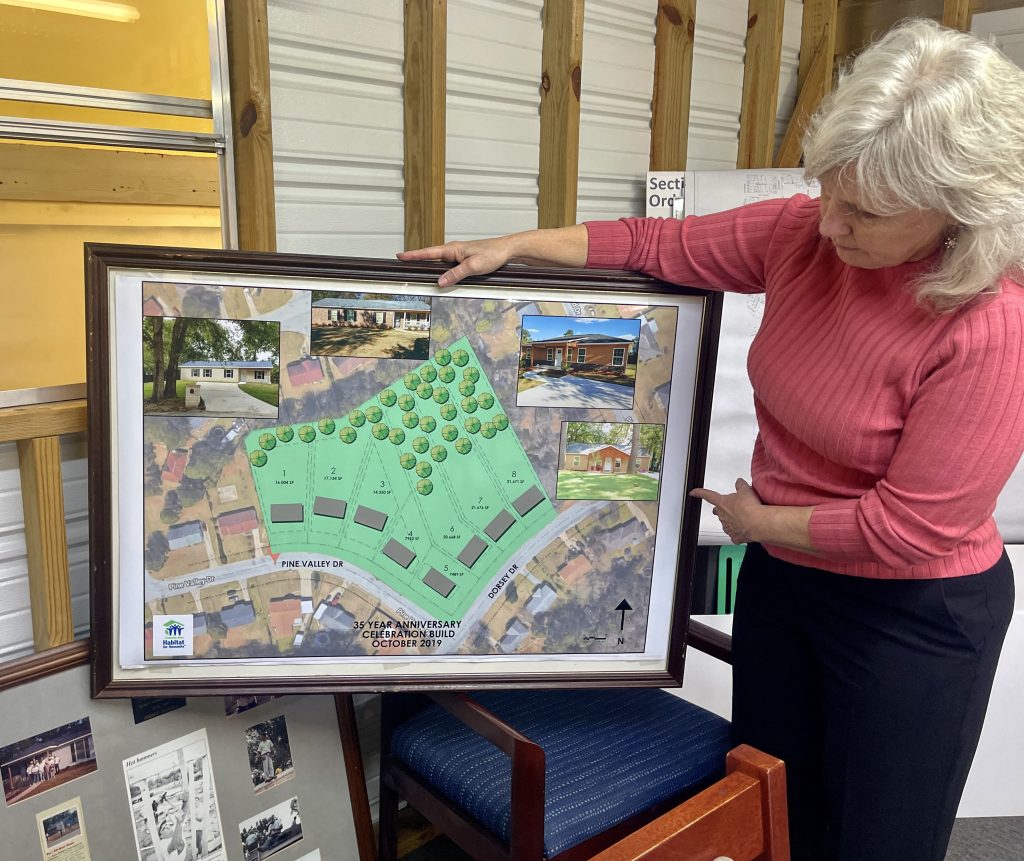
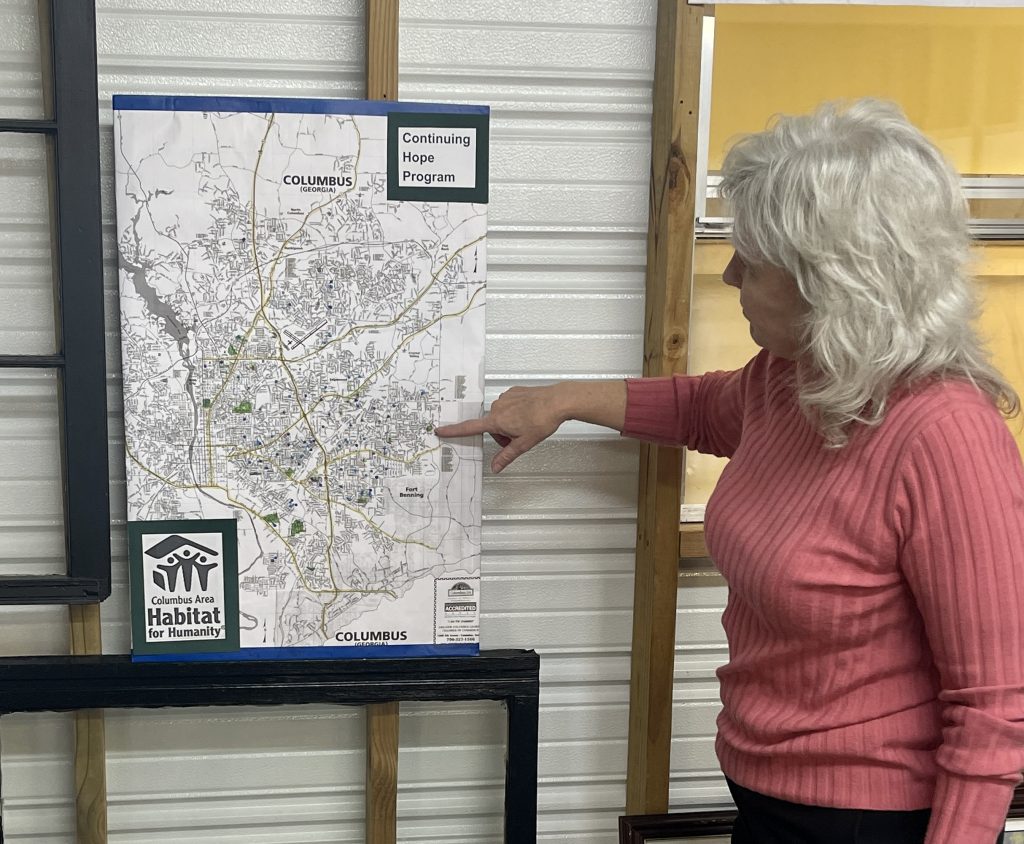
The Columbus Area affiliate will soon expand to cover Talbot County, correct?
“That’s almost official. It’s so small there and it’s a huge challenge to run operations with a small affiliate.
It’s not going to be a heavy burden for ust to drive there. We’ll set projects for the year and do them and move on. It will be rural projects, working with septic tanks, larger pieces of land to build the houses. That’s all new for us but we can do it. We’re excited to do it.”
You are now raising funds in a $1 million capital campaign. Why do you think you can achieve that goal?
“Everyone is always asking for money for something cool in our community.
We’re asking our loyal supporters and our new people to share our new programs with the community. What we find unique is gift in-kind donations. Columbus Water Works has donated water hook-ups for the next 8 houses. That’s a nice value.
We urge people to donate in-kind gifts if they don’t have cash but have a business that can help us with something. We just received a large donation of lighting we can use in houses.
We haven’t set a strict deadline and we’re about 20 percent of the way now. It will take time but we’ll achieve it.”
Who are some of your biggest supporters in the community?
“Aflac. They build a whole house every year that employees work on . They usually allow 15-20 employees but it’s been very low — sometimes 5 or less because of COVID regulations.
We have a new sponsorship from Global Payments TSYS, and we’re happy with that. We have a lot of small donors who help us along the way.”
What is your long-term vision for this organization?
“We want to show the community what we do and to have a bigger impact. We haven’t done a group of houses in a while because we’ve been so busy doing repairs.
We have a 3-acre plot in east Columbus that used to be a YMCA park off Schatulga Road and Darcy Drive where we can put 8 houses. The ultimate goal is to let Columbus know of the various things that we do.”
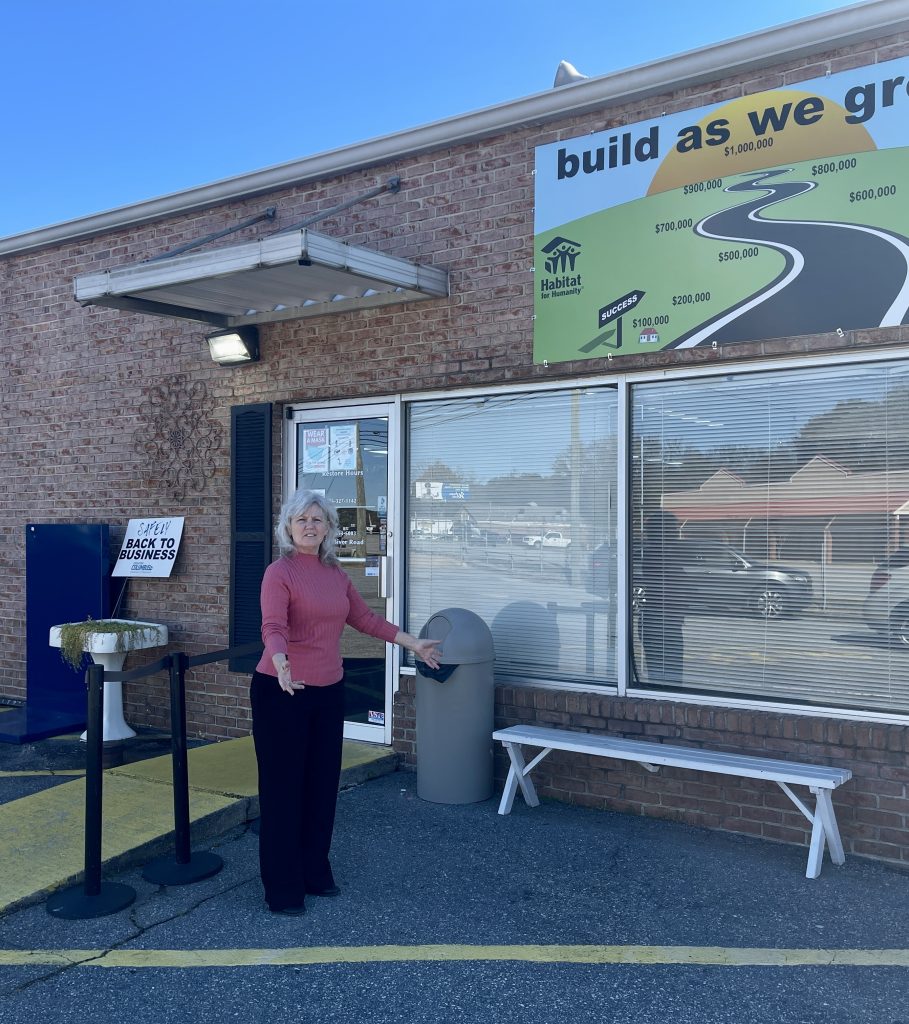
Hometown: Wyandotte, Michigan
Education: Lake Superior State, Sue St. Marie, Michigan, Human Services Degree
Professional background: “I started as Executive Director in Columbus February 24, 2014. I had been at Habitat International in Americus. I traveled around the country monitoring government grants. While it wasn’t the most exciting job it was fun to go see all the affiliates all over the country. I used to be a Habitat director in Michigan. It’s been 23 years of doing this type of work. I really like it.”
Book Currently Reading: The Boat People by Sharon Bala
Favorite all-time movie: Love Among the Ruins with Katherine Hepburn
Historical figure who inspires you: Eleanor Roosevelt
Worst decision made as Executive Director of Columbus Area Habitat: “That’s hard because at the time you may think it’s bad when you’re making the decision but it could turn out to be the best thing you’ve ever done.”
Best decision made as Executive Director of Columbus Area Habitat: “To overhaul our scope of operations. We farm out our accounting and we don’t service mortgages anymore. We’re not professionals at that stuff; we’re good at building, volunteering, and fundraising. We’re too small of an organization to do all that in-house. We leave it to the professionals.”
Biggest challenge of your job: “You have to go with the flow. You can have the best-laid strategic plans and budgets and it can all go haywire in a couple of months.”
Biggest opportunity of your job: “To work with so many diverse people. To have volunteers and homeowners that would never cross paths otherwise — that’s pretty cool. We just have so many different people involved.”
